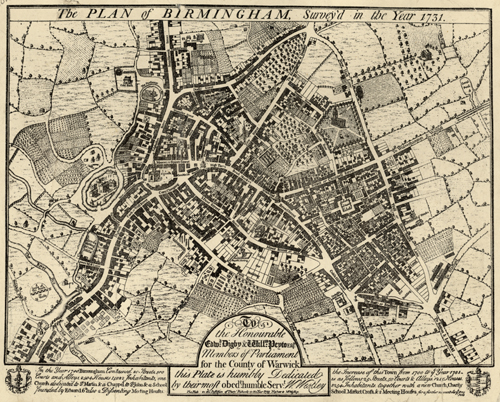
Birmingham is well known as a city of 1,000 trades but it might also be a city of 1,000 nations. Trade has brought people from far and wide to live and work in the city and a look at the censuses from the nineteenth century reveal people coming from across Europe and the “East Indies” (South Asia) and the “West Indies” (the Caribbean). In 1871 we find Paul Paulson and his wife Eliza, both singers, living in Coleshill Street near Dale End. Paul was born in the East Indies – we can only guess as to his heritage. Meanwhile over in Lichfield Street at the same time John Patnapally, a hawker and his wife Mary Ann, was born in Mumbai and we can suppose his heritage was probably in part at least South Asian. There are equally large numbers of people from the West Indies – sometimes the census gives us a place, as in the case of Matthew, a clerk, and Matilda Hyman who were living with their daughter Lizzie, a teacher, in Albion Street. He and his family were born in Kingston, Jamaica, part of a large Jewish community in Jamaica where they had settled, felling persecution in Europe from the 1530’s onwards.
The Hyman family shared the house with a boarder, Julius Scott, who was from Prussia, probably part of the Scottish Prussian Community established through trading links in the Middle Ages. We know that Matthew Hyman was Jewish, as his burial at Balls Pond Road Jewish Cemetery in London is recorded in 1882.
Birmingham has always been a city of vibrant diversity with thousands of stories waiting to be told.
Rachel MacGregor


